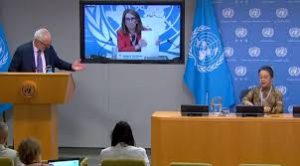Global Debt Crisis : UN Report

A report released by the UN Trade and Development (UNCTAD) titled “A World of Debt 2024: A Growing Burden to Global Prosperity,” has revealed an unprecedented global debt crisis in the world.
- Approximately 3.3 billion people currently live in countries where the payment of interest on debts surpasses the expenditure on either education or health.
Highlights of the Report:
- Institute of International Finance (a global association of financial institutions) has estimated that global debt (including borrowings of households, businesses and governments) has reached USD 315 trillion in 2024, which is 3 times the global Gross Domestic Product (GDP).
- Global public debt is rising rapidly, due to a combination of recent crises (such as Covid-19, rising food and energy prices, climate change, etc.) and a sluggish global economy (slowing growth of economy, rising bank interest rates etc).
- Net interest payments on public debt reached USD 847 billion in 2023 in developing countries, a 26% increase compared to 2021.
- Public debt in developing countries is rising at twice the rate of that in developed countries.
- It reached USD 29 trillion (30% of the global total) in 2023, increasing from 16% in 2010.
- Africa’s debt burden is growing faster than its economy leading to a rise in the debt-to-GDP ratio.
- The number of African countries with debt-to-GDP ratios above 60% has increased from 6 to 27 between 2013 and 2023.
- This is due to unforeseen global issues impacting their expansion and reduced domestic income as a result of a slow economy.
- Roughly 50% of developing countries are now dedicating a minimum of 8% of their government revenues to servicing their debts, a number that has increased twofold in the last ten years.
- Currently, developing nations are spending a greater portion of their GDP on paying off interest (2.4%) than on climate efforts (2.1%).
- Their ability to address climate change is being constrained by debt. In order to meet the targets of the Paris Agreement, there is a requirement to raise climate investments to 6.9% by 2030.
- ODA is government aid aimed at promoting economic development and welfare in developing countries.




